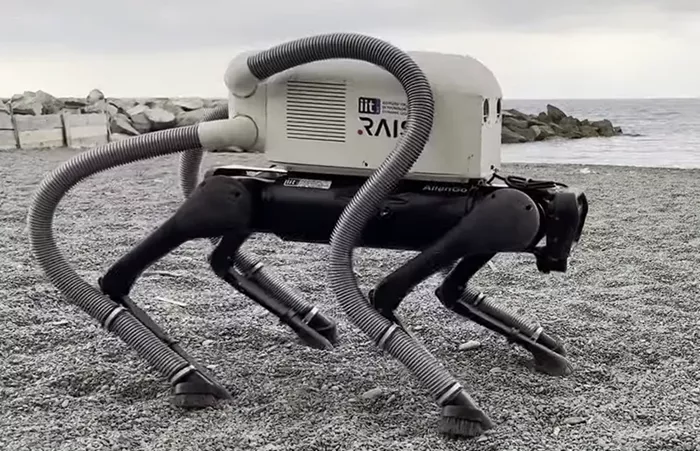A pioneering robotic solution designed to address environmental pollution has emerged from Italy. Named VERO, this innovative quadruped robot employs advanced artificial intelligence to efficiently clean up cigarette butts and other small debris from beaches and various public spaces.
Cigarette butts, notorious for their environmental impact, are particularly problematic as they leach toxic chemicals and microplastics into marine ecosystems. Their cleanup is notoriously difficult, especially on challenging terrains like sandy beaches. In response to this issue, Italian scientists from the Dynamic Legged Systems lab at the Italian Institute of Technology in Genoa have developed VERO, a sophisticated vacuum-equipped robot designed to tackle this problem head-on.
The design and development of VERO were detailed in a research paper published in the Journal of Field Robotics in April. According to the study, cigarette butts are a major concern due to their high frequency as discarded waste and their environmental impact. The paper highlights that such waste often accumulates in areas inaccessible to traditional wheeled or tracked robots.
VERO operates by walking across designated areas to detect and collect litter. The robot utilizes a specialized convolutional neural network and onboard cameras to identify trash. Four vacuums mounted on its legs then efficiently suck up the litter, including those hard-to-reach cigarette butts, as reported by IEEE Spectrum.
One of VERO’s notable features is its adaptability to various terrains. Testing revealed its ability to navigate six different outdoor environments successfully, even on sandy beaches where wheeled bins would struggle. An Intel RealSense depth camera mounted on its chin enhances its stability and precision during the cleanup process.
Although VERO did not achieve a perfect cleanup in initial tests, it effectively removed 90 percent of the cigarette butts identified. This significant reduction in waste highlights VERO’s potential to mitigate ocean pollution.
Currently, there are no concrete plans to deploy VERO widely. However, the researchers envision its potential for broader applications, such as agricultural spraying, infrastructure inspection, and construction support, demonstrating the robot’s versatile capabilities beyond waste management.

